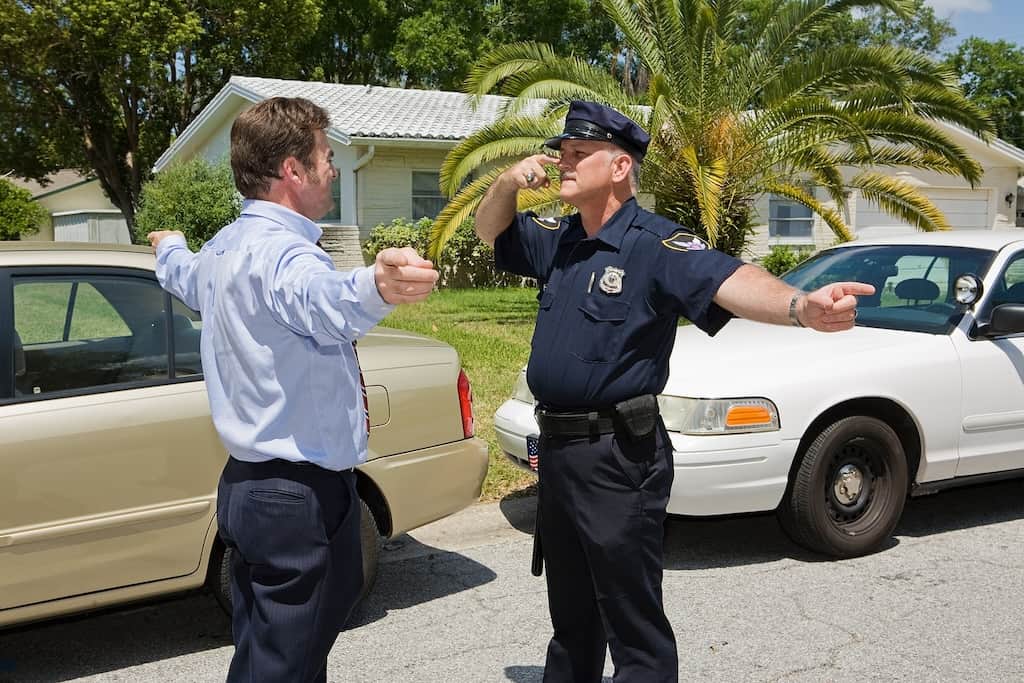
Pros and Cons of Refusing to Take a Field Sobriety Test in Ohio.
If you are stopped by the Ohio police for a suspected DUI (aka “OVI”), you must know your rights. As an Ohio citizen, if the police pull you over and suspect you of driving under the influence (DUI), they usually ask you to submit to a field sobriety test.
You must note that you have the legal right to refuse to test, but the real question is, should you do so?
Although you have the legal right to refuse to test, you may put yourself at more risk and make a potential DUI conviction even worse. That said, before you refuse the police officer’s request, you must understand the potential outcome of making this decision. that could happen from this decision.
Because of Ohio’s laws on “Implied Consent Statutes,” whether you take the test or not, the police can still arrest you, suspend your license, and more.
If you refuse to take any field sobriety test, then the time your license is suspended will depend on whether this is your first offense. For even your 1st offense, you can receive a 1-year suspension for a DUI and go up from there.
So, by not taking the test, the suspension may be lengthier than if you took it in the first place. If you take the test, your license suspension may be only 90 days.
So, if you are putting yourself at risk by not taking the test, why do so many Ohio residents refuse to take it?
The main reason is that without taking the field sobriety test, the prosecution may not have the potential evidence needed to make a substantial DUI case against you in court. Of course, the prosecution will still use your refusal to submit to the test as part of their argument, but this doesn’t carry near as much weight if there is additional evidence (such as breathalyzer testing) to prove their case.
You must know that you can refuse to take the test, but you are taking legal risks by doing so.
Whether you decide to take the field sobriety test or not, getting a complete case evaluation from a professional, experienced Cincinnati DUI lawyer is always your best strategy and should be done as soon as possible.
What Is “Field Sobriety Testing?”
If the Ohio police stop you and suspect you of a DUI (or OVI), they will use the results of a field sobriety test to determine if you are driving under the influence of alcohol or drugs.
Several types of field sobriety tests are used, such as a breathalyzer and blood tests, or you may have to perform the “walk and turn” test, the “one-leg stand” test, or a vision test.
When you take these physical tests, the police are trained to observe your ability to follow detailed instructions and keep your balance. The police then can use these subjective test results as evidence to back up their decision to arrest you for OVI.
It’s vital to note that taking any field sobriety test at the scene may help the police build a stronger case against you.
Additionally, there are some reasons why you should never take these tests, as some physical and mental conditions may work against you, such as:
- You are not physically fit in the first place.
- You are unduly stressed when being questioned by police.
- You are fatigued or simply worn out physically.
- You’re in a noisy area, and hearing the officer’s directions is hard.
- And many more.
Law enforcement has used these tests for decades, but data suggests they are not always accurate. In fact, any symptoms that mimic intoxication exist and can easily result in you being falsely arrested for DUI.
What is Ohio’s’ “Implied Consent Law?”
In Ohio, the “implied consent” laws do mandate that if you are arrested for an OVI (aka DUI), you must submit to a “BAC”(blood alcohol concentration) test to determine the amount of drugs or alcohol in your system.
However, the “implied consent law” does not require you to submit to chemical testing before you’re lawfully arrested. At that point, you have the right to refuse testing or any “preliminary alcohol screening” (PAS) test.
Also note that for your arrest to be lawful, the police that stopped must have “reasonable grounds” to believe that you are under the influence of alcohol or drugs. This is a “gray” area that your Cincinnati DUI defense lawyer can take full advantage of if needed.
If you are arrested, the officer at the scene will decide what type of test, such as blood, breath, or urine, will be administered.
If this is your first or second OVI, the police must explain that you’re under arrest, and your license will be suspended for refusing to take the test prescribed. There are also circumstances in which the arresting officer must tell you he or she can use “reasonable force” to compel you to take the test.
This can be a stressful, horrific, and life-affecting situation, and no matter what does occur, the advice and professional guidance of your Cincinnati DUI defense lawyer will be invaluable to protect your rights and freedom.
Before I’m Arrested For DUI, Can I Be Forced To Take a DUI Test?
Your reasons for refusing a pre-arrest and especially a post-arrest blood, breath, or urine test depend entirely on the circumstances involved at the scene. Just always remember that refusal before or after your arrest can have grave consequences. Also, your refusal may not help you avoid a DUI, and you may be found guilty even without any BAC test results.
If you refuse to test, an officer with substantial probable cause may still obtain a search warrant from a judge authorizing an involuntary blood test.
These may be rare “exigent circumstances,” but you can be forced to take a test even if a judge cannot issue a warrant. For example, the police can administer a test if you’re unconscious or unable to refuse.
In any police interaction today, things can get complex and escalate beyond what you usually expect. Therefore, the sooner you contact your competent and aggressive DUI defense lawyer (even from the scene itself), the better your chances of averting any life-altering consequences from this unexpected event.
I Have Been Charged With a DUI in Ohio; What Should I Do?
Yes, you have the right to refuse a field sobriety test if you haven’t been arrested yet. However, whether it’s in your best interests to do so is problematic.
So, the best overall move to make is, whether you choose to take a field sobriety test or not, to immediately obtain the advice and guidance of a qualified DUI criminal defense lawyer to minimize or erase any potential charges and penalties you face.
The aggressive, professional, and diligent DUI defense lawyers at Ernst & Associates have been drafting successful defense strategies for Ohio citizens in myriad OVI cases. Call them today at (513) 579-9500, and they will work tirelessly to protect your rights and freedoms.
Back to Blog

